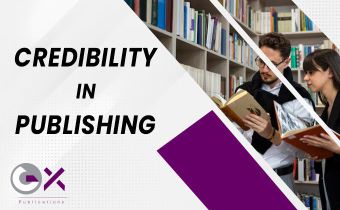
Publishing research is how knowledge grows. It's how students, teachers, and experts share what they've discovered. But today, not all publishing is honest.
Many fake journals are now online. These journals look real, but don't check the research. They take money and publish anything, even if the work is wrong or copied. This hurts people who are working hard to do honest research.
Students doing their PhDs or working on serious research are most at risk. They often feel pressure to get published fast. Fake journals offer a quick way, but this can damage their name and career. Once your work is in a fake journal, many real scholars won't trust it.
This problem has grown fast because of the Internet. Anyone can set up a website and call it a "journal." Some even make up fake editors or copy names from real universities.
Why does this matter? Because when bad research gets shared, it confuses people. It spreads wrong ideas. It can even lead to bad decisions in health, science, or education.
Real publishing means your work gets checked by other experts. It takes more time, but it protects the value of what you've done. It shows you care about truth, not just speed.
If we want to keep trust in research, we need to know the difference between real and fake. We need to support honest publishing and stay away from shortcuts.
Not all journals are real. Some are fake and only care about money. These fake journals ask researchers to pay, then publish their papers without checking the facts. They don't do peer review. They don't care if the work is original or correct. Their websites may look professional, but the work they share can be full of errors.
This creates a big problem:
Fake journals are often called "predatory journals." They email researchers, offer fast publishing, and charge high fees. Some even copy the names of real academic groups to look trustworthy.
Why do people fall for it?
Misinformation hurts more than just researchers. It can lead to bad science in medicine, climate studies, or education. It confuses the public and weakens trust in real research.
To stop this, researchers must learn to spot fake journals. And universities must teach how to check for trusted, peer-reviewed publishers. If we care about truth, we must care about where we publish.
Credible publishing is about trust. When a journal is honest and follows strong rules, people know the research is real.
Peer review is a big part of this. It means other experts read and check the paper before it gets published. They look for mistakes, weak arguments, or copied content. This makes sure the work is strong and useful.
Why does this matter?
When a journal is not credible, none of this happens. Anyone can publish anything, even if it's false or stolen. This hurts the author and the whole academic field.
Doctoral students and researchers should publish in journals that:
Credible publishing is not about being popular. It's about being honest, careful, and clear. Good research deserves a good home. When you publish in the right place, your work lives longer, reaches more people, and helps others learn.
Publishing is a big part of academic life. For PhD students, it's not just a goal — it's a requirement. But where they publish can make or break their work.
Many students feel pressure to get published fast. That’s when fake journals take advantage.
When a scholar publishes in a fake journal:
Universities also suffer:
Good publishing helps build careers. It also shows that a student has done strong and honest research.
That’s why universities should:
For doctoral scholars:
Publishing should not be a race. It's about making your work matter. And that starts with choosing a credible place to publish.
Not all journals are equal. Some follow strong review rules. Others don't. Knowing the difference can protect your work.
Before you submit your research, check the journal carefully.
Look for these signs:
Always double-check before paying any fees. A trusted journal builds your reputation. A fake one can damage it. Take your time. Ask questions. Your research deserves a safe and honest place to live.
Colleges and universities play a big part in shaping research habits. They can help students and faculty avoid bad journals and publish with trusted ones.
Here’s how they can do it:
When institutions lead by example, researchers follow the right path. They feel supported and better equipped to make smart choices. Fake journals grow when people feel lost or rushed.
A strong support system stops that from happening.
Academic integrity means doing honest work, giving credit, and not taking shortcuts.
It’s about building trust in research and learning.
To grow this culture, everyone in education needs to take part..
When truth becomes the norm, students work with pride. They stop looking for shortcuts. They value learning more than just results.
This change takes time, but it starts with daily actions. One honest step at a time builds stronger research and better futures.
Credible publishing builds strong research. It keeps the value of academic work alive. Without it, trust breaks and good ideas get lost. Fake journals, poor reviews, and false data harm everyone. Students, teachers, and readers all pay the price.
To protect scholarship:
Everyone plays a part—authors, reviewers, universities, and publishers. Each choice shapes what knowledge looks like tomorrow. If we keep publishing honest and fair, research will stay useful. That's how we protect education. That's how we keep learning real.
No comments yet. Be the first to comment!
Your email address will not be published. Required fields are marked *